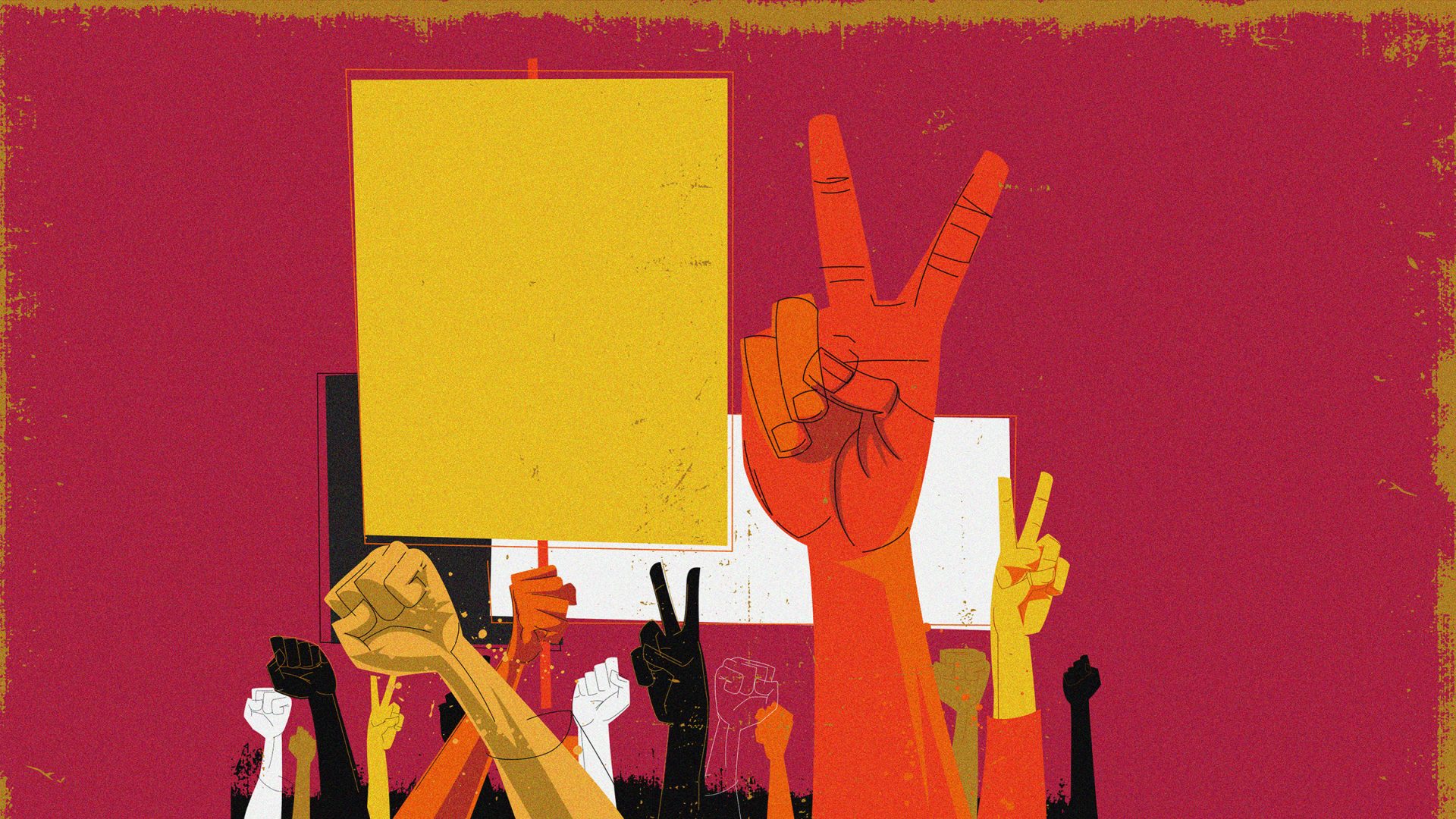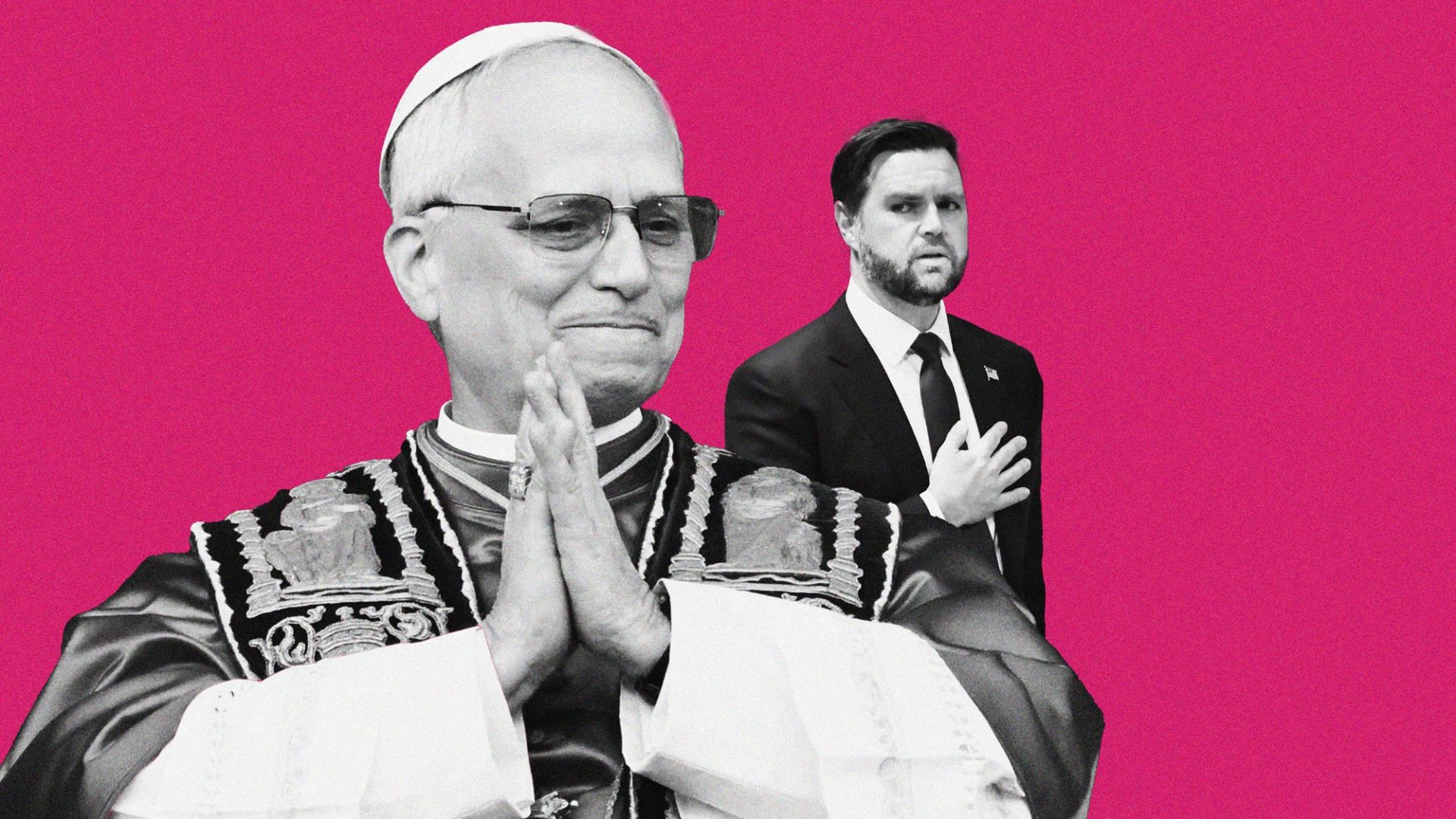The internet has become a playground for trolls, hate-mongers, and libel artists – and it’s been out of control for ages. But what’s spiralling now, among German judges and prosecutors, is something else entirely: the value placed on free speech.
Whether sparked by the refugee crisis, the pandemic, Russia’s war in Ukraine or climate change, many people already describe today’s Germany as GDR 2.0 – a reference to the old, totalitarian East Germany. That is absurd, but nevertheless it is a problem if an ever-larger number of people are hesitant to voice political opinions, and feel excluded from public discourse.
A few recent cases make the point. Take the 64-year-old whose flat was raided after he shared a meme of then-economics minister Robert Habeck (Greens), doctored to read Schwachkopf (half-wit) in the style of Schwarzkopf shampoo.
Or the man fined €3,500 (£2,950) for a snapshot showing then-health minister Karl Lauterbach with his right arm raised. Or €1,500 (£1,260) for sharing an ironically annotated screenshot on X of trending topics with the hashtag #AllesfürDeutschland (All for Germany – a banned slogan once used by the SA, Hitler’s original paramilitary group).
Or this one: a suspended seven-month jail sentence and a fine of €1,500 for the editor of a far right rag that had published a photomontage of the SPD’s Nancy Faeser, then interior minister, holding a sign saying “Ich hasse die Meinungsfreiheit” (“I hate freedom of expression”). The court didn’t trust the public to get the satire.
And then there was the protester in Berlin with a sign reading “Have we learned nothing from the Holocaust?” – convicted on the grounds that she had trivialised the Shoah.
To be clear: I disagree with all the expressed views, in content, form or both. And yes, words matter – that’s precisely what makes this debate so tricky.
Years ago, I tested the responsiveness of German law myself, after a particularly nasty post about me. Had I simply been called “the dumbest so-called journalist ever”, fine. But this was a sexualised insult – clearly libellous. I filed a complaint. Here’s what happened: nothing. I haven’t bothered since.
When politicians file similar complaints – as in most of the cases above – things can move fast, thanks to a 2021 change in our criminal code, which now penalises insulting a “person in the political life of the people”.
Wanting to shield people in a public office from abuse is understandable. Local politicians, in particular, are dropping out in droves after being hounded, online and off. But when the law hands out six-month minimum sentences for verbal offences, it starts to feel less like protection and more like Majestätsbeleidigung – lèse-majesté, modern edition.
And by the way: who in their right mind would believe the interior minister actually walks around with a sign saying “I hate free speech”?
Unsurprisingly, these decisions have triggered a wave of criticism – from the public, the media, legal scholars, and politicians themselves. Because whether intended or not, they reinforce the far right’s favourite narrative: that you can’t speak your mind any more.
Sanctions have been tightened in other areas, too. In cases of “deadnaming” or “misgendering”, offenders can be fined up to €10,000 under the Self-Determination Act.
Legal scholars think this isn’t the end, yet: the coalition agreement envisages a new independent media watchdog to monitor “fake news” and Hass und Hetze – hate and incitement.
Frauke Rostalski, a criminal law and legal philosophy professor from Cologne University, recently issued this warning in Legal Tribune Online: “The impression quickly arises that critical voices are to be silenced by criminal law means – by the very people who see themselves scrutinised by this criticism.” She doubts that those who want to make democracy and social discourse more resilient can do so by ever more criminal law interventions in freedom of expression.
Rostalski argues that state interventions and individual hypersensitivities could stifle conversation and, at worst, result in “relevant arguments being ignored, entire topics avoided, or speakers excluded from the discourse”.
Many of these verdicts will probably be overturned on appeal. But the damage is done. They offer exactly what conspiracy theorists and far right influencers crave: an invitation to play the martyr. And the courts, of all places, should know better than to hand them that script.




